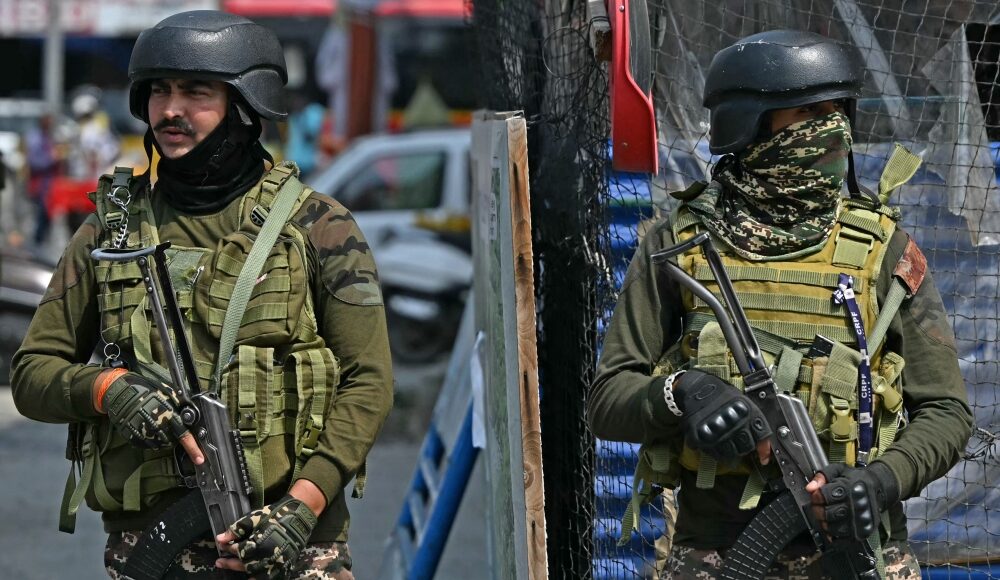MAY 7 — When Indian journalist Palki Sharma accused Malaysia of “not being a neutral mediator” in the ongoing tensions between India and Pakistan, and claimed that Malaysia frequently “takes Pakistan’s side,” the accusation not only mischaracterises Malaysia’s position — it also endangers the very diplomatic space needed to prevent a nuclear or humanitarian catastrophe in South Asia.
Malaysia, under Prime Minister Anwar Ibrahim, has never made pretensions to replace bilateral dialogue between India and Pakistan. But when such dialogue is frozen, obstructed, or weaponised for domestic gain — as it frequently has been — the international community has both a right and a responsibility to advocate for de-escalation. And that includes through third-party mediation.
1. Mediation is not meddling
The principle of third-party mediation is not new. It is a well-established tool of diplomacy, particularly under Chapter VIII of the United Nations Charter, which allows regional organisations and non-partisan actors to help maintain peace and security. Malaysia’s call for mediation is not interference in India’s internal affairs — it is a humanitarian, moral, and legal response to a dangerous flashpoint that threatens an entire region.
Calling Kashmir “India-administered” is not a value judgment. It is the standard nomenclature used by the United Nations, major international organizations, and reputable global media outlets. Just as “Pakistan-administered Kashmir” exists in global discourse, so too does “India-administered Kashmir.” Malaysia’s use of this term reflects factual description, not political alignment.
2. Bilateralism has reached a breaking point
India’s long-standing position that Kashmir is a “bilateral issue” has failed to yield lasting peace. The Simla Agreement (1972) and Lahore Declaration (1999) are often cited as frameworks for dialogue, but both have collapsed into rhetorical devices rather than practical roadmaps.
When two countries with nuclear weapons repeatedly face off over unresolved grievances — and when these grievances result in civilian casualties, cross-border strikes, and mass displacements — then diplomacy cannot wait for perfect conditions to emerge. It must step in immediately, and boldly.
3. Malaysia has proven itself a credible mediator
Malaysia’s foreign policy track record demonstrates consistent support for peace. Whether in southern Thailand, southern Philippines, or even Track II diplomacy in the Asia-Pacific, Malaysia has played roles that prioritise quiet diplomacy, dialogue, and mutual respect. These are not signs of bias. They are signs of competence.
As the Chair of Asean in 2025, Malaysia carries the institutional authority of a regional organisation recognised under international law. Asean’s Charter and its Treaty of Amity and Cooperation stress the importance of peaceful resolution of disputes — a principle Malaysia is applying not just within the region, but in the spirit of global solidarity.
Prime Minister Anwar Ibrahim’s call for peace in Kashmir stems from this Asean-based ethos. It also stems from his long-standing belief in a dialogical society — a community that seeks understanding over hostility, empathy over enmity, and reconciliation over retaliation.
Indian paramilitary personnel stand guard along a road in Srinagar on May 7, 2025, following border tensions. — AFP pic
4. Third-party arbitration can prevent a regional catastrophe
Let us be clear: Kashmir is not just a bilateral issue. It is a regional time bomb. Escalation between India and Pakistan affects water security, energy flows, military buildups, and ethno-religious tensions far beyond South Asia. With the Indus Waters Treaty effectively suspended and mutual distrust at an all-time high, even a minor skirmish can cascade into a full-scale confrontation.
Malaysia is not alone in recognising this. Former UN Secretary-General Kofi Annan, Nobel laureates like José Ramos-Horta, and seasoned diplomats across the Non-Aligned Movement have all emphasised that intractable conflicts require external facilitation — especially when the parties involved have entrenched narratives and hardened positions.
5. Mediation offers a face-saving exit, not a power grab
One of the greatest misconceptions is that accepting third-party mediation is a sign of weakness. It is not. Great powers throughout history have accepted mediation to avoid needless bloodshed and reputational damage. Mediation offers a face-saving exit — a way to engage without compromising sovereignty, and a way to prevent escalation without appearing to back down.
If anything, India — poised to lead in the Global South and seeking a permanent seat on the UN Security Council — has every reason to show maturity by welcoming external help. Shunning mediation only weakens India’s moral standing, especially when the risks of war now include potential nuclear fallout.
6. Moral courage is greater than nationalistic rhetoric
Palki Sharma’s argument that “India does not require mediation” rests on a nationalist view that diplomacy must be controlled entirely by state actors in isolation. But such thinking runs counter to the realities of 21st-century geopolitics, where networks of interdependence, regional alliances, and shared vulnerabilities necessitate multilateral dialogue.
Malaysia’s role here is not to insert itself as an adjudicator, but to offer its good offices — to bring parties to the table and reduce tensions in any way possible. That is not partisanship. That is peacemaking.
Step up, not step away
If anything has been proven in recent years, it is that silence in the face of injustice emboldens further violence. Malaysia, Asean, and responsible actors worldwide must step up, not step away.
Calling for dialogue is not disrespect. It is diplomacy.
Calling for mediation is not interference. It is intervention for peace.
And when lives are at risk, the world must not wait for permission to act. It must act with courage, empathy, and foresight.
*Phar Kim Beng is a professor of Asean Studies at the International Islamic University Malaysia (IIUM).
** This is the personal opinion of the writer or publication and does not necessarily represent the views of Malay Mail.





